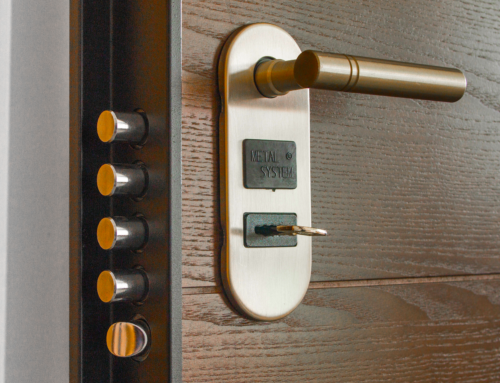Divorce and bankruptcy often occur together, leaving families grappling with complex financial and emotional issues. When divorce proceedings result in the transfer of a marital home and one spouse later files for bankruptcy, a common question arises: Will the bankruptcy court disturb the property transfer?
In New York, where real estate is highly valued, and marital splits can take a heavy financial toll, it’s critical to understand how bankruptcy laws impact property settlements. The short answer is that a properly executed divorce decree can protect property transfers, but there are exceptions—especially if the bankruptcy trustee suspects the transfer was done in bad faith. This post will explore how New York’s laws on bankruptcy, exemptions, and fraudulent transfers affect property divisions during a divorce.
New York Property Transfers in Divorce: The Basics
In a New York divorce, the process of dividing assets follows the principle of equitable distribution. Unlike community property states, where assets are split 50/50, equitable distribution means that property is divided based on fairness. Factors such as the length of the marriage, contributions to the household, income, and the needs of any children come into play.
For many couples, the marital home is one of the most significant assets, and often, one spouse is awarded the house, especially if there are children involved. Courts typically aim to provide stability for the children by allowing them to remain in their homes. In such cases, the other spouse may transfer their interest in the property as part of the divorce settlement.
Once the divorce is finalized and property transfer documents are executed, the house becomes the sole property of the receiving spouse. But what happens if the spouse who gave up their share of the home later files for bankruptcy? Can the house be clawed back?
Bankruptcy Filings After Divorce in New York
There are two common bankruptcy options for individuals: Chapter 7 and Chapter 13. Chapter 7 is a liquidation bankruptcy, where non-exempt assets are sold to repay creditors, while Chapter 13 involves a repayment plan based on the debtor’s income.
When bankruptcy follows a divorce, the court will examine any recent property transfers, including the marital home. Trustees are required to review transfers made within the two years preceding the bankruptcy filing to determine whether any were made with the intent to defraud creditors.
Generally, property transfers pursuant to a divorce decree are respected in bankruptcy. However, trustees are on the lookout for fraudulent conveyances, especially if they believe the transfer was done to keep assets out of the hands of creditors.
New York Exemptions in Bankruptcy
New York bankruptcy law offers a range of exemptions that allow individuals to protect certain assets from being liquidated. One of the most significant exemptions is the New York Homestead Exemption, which protects up to $179,950 in home equity (as of 2024) for properties located in New York City, Long Island, and the surrounding counties. The exemption amount is lower in other parts of the state, depending on the location of the property.
In cases where a divorced individual still retains an interest in the marital home, this exemption may protect their share of the home’s equity. However, if the home has been transferred to an ex-spouse, the exemption becomes irrelevant for the bankrupt spouse, as they no longer own the property.
Fraudulent Transfers and Property Division in Bankruptcy
Under both New York State law and the Bankruptcy Code, a property transfer can be reversed if it is deemed fraudulent. A fraudulent transfer occurs when a debtor transfers an asset to another person with the intent to hinder, delay, or defraud creditors.
In the context of divorce, if one spouse transfers the house to the other shortly before filing for bankruptcy, the bankruptcy trustee might investigate whether the transfer was made in good faith. For example:
- If the spouse continues to live in the house or pay the mortgage despite transferring the property, this could raise red flags.
- If the house was transferred for significantly less than its fair market value, the trustee may claim it was done to cheat creditors.
In such cases, the trustee could file a motion to reverse the property transfer, bringing the house back into the bankruptcy estate for potential liquidation.
How Divorce Decrees Affect Bankruptcy Proceedings
When a divorce decree explicitly states that a marital asset, like a house, should be transferred to one spouse, this is generally considered legally binding. Bankruptcy trustees will typically respect such orders as long as they appear legitimate and free of fraud.
In evaluating whether a property transfer made during a divorce qualifies as fraudulent, courts often use the standard of reasonably equivalent value. This means that the transfer must have been fair under the circumstances. In a divorce, property transfers to satisfy marital obligations (such as housing children or providing financial support) are typically seen as exchanges of reasonably equivalent value.
Therefore, a properly executed divorce decree that includes a property transfer is unlikely to be overturned in bankruptcy, provided there is no evidence that it was part of a scheme to defraud creditors.
Avoiding Pitfalls: Best Practices When Divorce and Bankruptcy Collide
When dealing with the twin challenges of divorce and bankruptcy, it’s essential to take a proactive approach. Here are a few steps to ensure that property transfers during a divorce hold up in bankruptcy court:
- Work with both a divorce attorney and a bankruptcy attorney: These two areas of law intersect in complex ways. Coordinating your legal teams is important to ensure that your property settlement is safe from bankruptcy challenges.
- Avoid delaying bankruptcy filings: If you know bankruptcy may be in your future, consult an attorney before finalizing the divorce. Waiting too long after a divorce to file for bankruptcy could lead to challenges, as recent transfers will be scrutinized more closely.
- Be transparent: Always fully disclose any debts and assets during divorce and bankruptcy proceedings. Hiding assets can lead to severe penalties, including the reversal of property transfers and potential accusations of fraud.
Protect Yourself by Lawyering Up
Divorce and bankruptcy often go hand in hand, particularly when one spouse faces financial difficulties after the marriage ends. In New York, properly executed divorce decrees typically protect property transfers, but bankruptcy trustees are on the lookout for fraudulent transfers.
By working with both a divorce attorney and a bankruptcy lawyer, you can ensure that your property division holds up in the face of a bankruptcy filing.
ABOUT THE AUTHOR
Meet Jay
 Since I became a lawyer in 1995, I’ve represented people with problems involving student loans, consumer debts, mortgage foreclosures, collection abuse, and credit reports. Instead of gatekeeping my knowledge, I make as much of it available at no cost as possible on this site and my other social channels. I wrote every word on this site.
Since I became a lawyer in 1995, I’ve represented people with problems involving student loans, consumer debts, mortgage foreclosures, collection abuse, and credit reports. Instead of gatekeeping my knowledge, I make as much of it available at no cost as possible on this site and my other social channels. I wrote every word on this site.
I’ve helped thousands of federal and private student loan borrowers lower their payments, negotiate settlements, get out of default and qualify for loan forgiveness programs. My practice includes defending student loan lawsuits filed by companies such as Navient and National Collegiate Student Loan Trust. In addition, I’ve represented thousands of individuals and families in Chapter 7 and Chapter 13 bankruptcy cases. I currently focus my law practice solely on student loan issues.
I played a central role in developing the Student Loan Law Workshop, where I helped to train over 350 lawyers on how to help people with student loan problems. I’ve spoken at events held by the National Association of Consumer Bankruptcy Attorneys, National Association of Consumer Advocates, and bar associations around the country. National news outlets regularly look to me for my insights on student loans and consumer debt issues.
I’m licensed to practice law in New York and California and advise federal student loan borrowers nationwide.
continue reading




